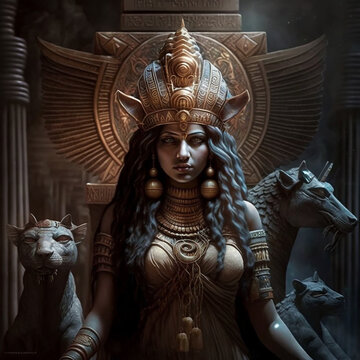The Sumerian Civilization - Origins, Achievements, Kings, and Wars
The Sumerian civilization is considered one of the oldest civilizations to have emerged in the world, playing a crucial role in the development of human civilization. Its roots can be traced back to prehistoric times in the region known as Mesopotamia, which is present-day Iraq. The Sumerian civilization flourished from around 4,000 BCE to 2,000 BCE.
The Sumerian civilization stood out for its advanced developments in various fields, ranging from agriculture and irrigation to literature, science, and arts. The Sumerian cities boasted a high level of social and administrative organization, witnessing the evolution of the ancient Sumerian writing system, which is one of the earliest known writing systems in history.
Among the significant achievements of the Sumerian civilization was the development of the writing system known as "Cuneiform," which enabled the Sumerians to document information and exchange knowledge in an organized manner. They also invented the earliest known system of timekeeping and had advanced knowledge in irrigation, agriculture, and urban infrastructure.
The Sumerians had prominent kings who contributed to the advancement of Sumerian civilization and governance. One of the most notable kings was Gilgamesh, renowned for his strength, bravery, and wise leadership. Gilgamesh is the hero of the Epic of Gilgamesh, one of the greatest literary works from ancient Mesopotamia.
The Sumerian civilization also witnessed wars and conflicts as the Sumerian city-states competed for resources and power. The Sumerian cities were invaded by neighboring empires, such as the Akkadian and Babylonian empires.
The Sumerian civilization was a pioneer in several aspects and left behind a massive cultural legacy for future generations. It had a significant influence on subsequent civilizations in the region, including the Babylonian and Assyrian civilizations. The history of the Sumerian civilization is an important chapter in ancient history, as it shaped the development of human civilization and impacted various cultural, social, and political aspects.




Comments
Post a Comment